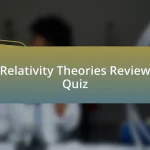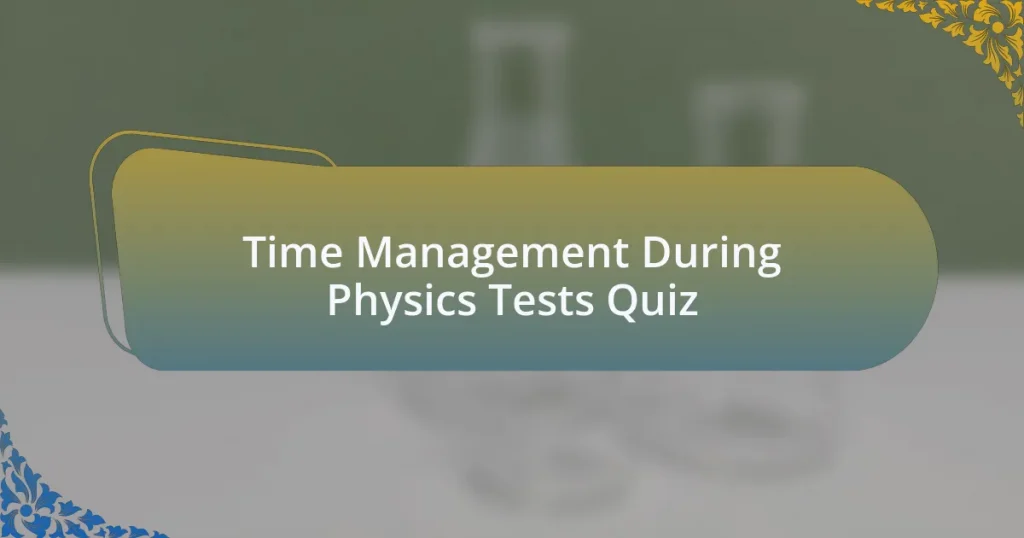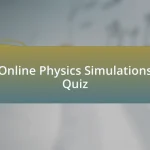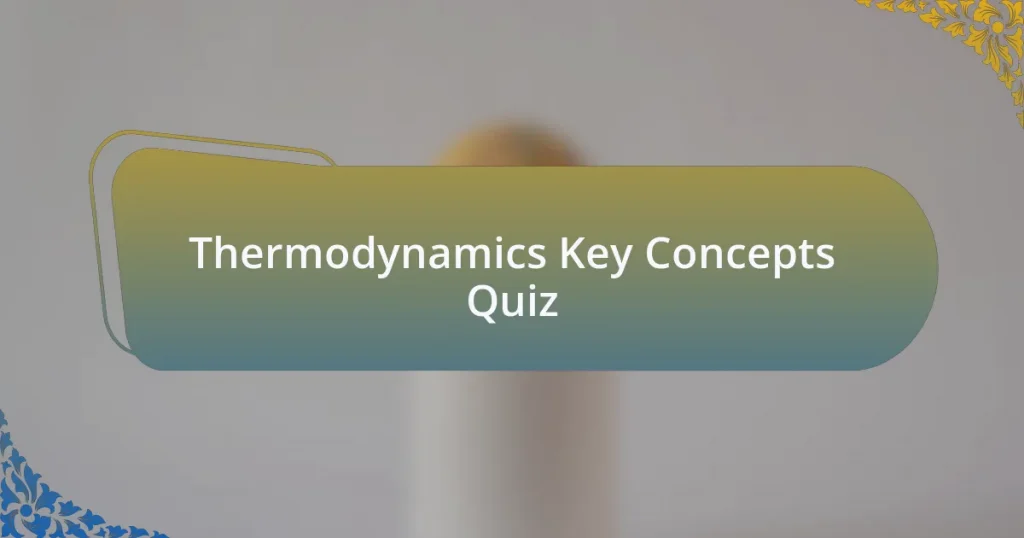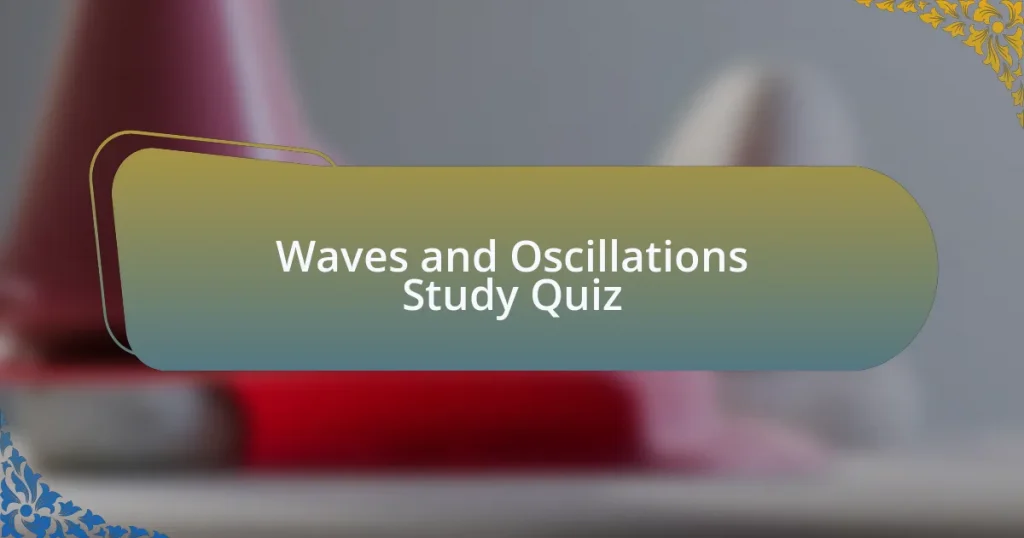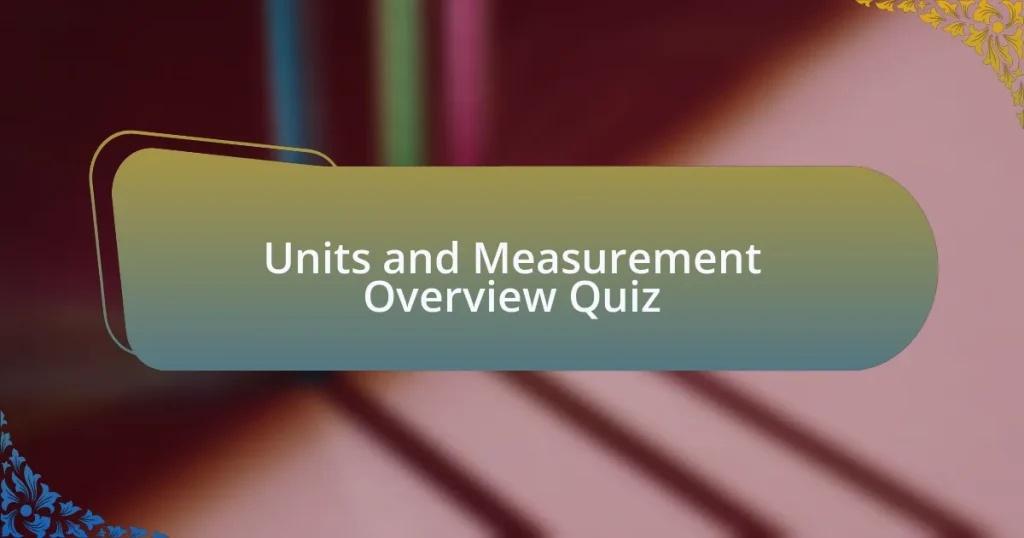Start of Time Management During Physics Tests Quiz
1. What is time management in the context of physics test preparation?
- Memorizing every equation in the syllabus.
- Counting down the seconds until the exam begins.
- Planning how to divide time between activities.
- Arranging study materials in alphabetical order.
2. Why is effective time management crucial during physics exams?
- It allows for last-minute cramming before the exam.
- It makes the exam questions easier to solve.
- It helps in ensuring all questions are answered within the time limit.
- It reduces the overall exam difficulty for everyone.
3. What initial steps should you take for better time management before a physics test?
- Ignoring the study syllabus.
- Identifying your goals.
- Attending unnecessary meetings.
- Overloading your schedule.
4. How does the Pomodoro Technique assist in managing study time for physics?
- It promotes multitasking to cover more material.
- It encourages studying for long, uninterrupted periods.
- It divides study time into focused intervals and breaks.
- It suggests studying in groups for better understanding.
5. Can you identify a common time-wasting habit during physics test preparation?
- Completing practice questions
- Procrastinating with revisions
- Studying the syllabus thoroughly
- Organizing study materials
6. What method can you use to prioritize your physics study tasks?
- Ignoring difficult topics
- Focusing solely on memorization
- Studying without breaks
- Using the Eisenhower Matrix
7. What overall goal should effective time management aim to achieve?
- To make the most of available time.
- To complete all tasks without breaks.
- To avoid any change in the schedule.
- To reduce distractions completely.
8. How can delegating tasks benefit your physics study schedule?
- It allows you to study less by cutting corners.
- It makes you dependent on others for understanding.
- It frees up time to focus on higher-priority tasks.
- It complicates your study schedule and increases stress.
9. What is the concept of time blocking in the context of physics preparation?
- Time blocking is a technique for procrastination avoidance.
- Time blocking is an approach for improving physical fitness routines.
- Time blocking is a method for randomizing study topics.
- Time blocking is allocating specific time slots for studying distinct topics in physics.
10. Why is it important to avoid an overloaded study schedule for physics?
- It allows for more difficult problems to be solved.
- It improves exam scores immediately.
- It reduces stress and prevents burnout.
- It gives extra time for social activities.
11. What does the ABCD Method focus on in managing time effectively?
- It emphasizes reducing stress and anxiety.
- It increases productivity and efficiency.
- It prioritizes comfort over urgency and importance.
- It focuses on breaking tasks into pieces.
12. What role do specific goals play in your physics study plan?
- To ensure you study at random times.
- To focus your efforts and prioritize tasks.
- To distract from unimportant topics.
- To avoid setting any direction for study.
13. How does the Eisenhower Matrix help prioritize physics topics?
- It eliminates the need for studying at all.
- It lists all topics alphabetically.
- It focuses only on the most difficult topics.
- It categorizes topics based on urgency and importance.
14. In what way can time management ensure you meet your physics test deadlines?
- By setting realistic deadlines and allocating specific time slots for different tasks.
- By focusing solely on multiple-choice questions without planning.
- By cramming all the material the night before the test.
- By studying randomly without a clear schedule.
15. Why is understanding your physics syllabus important for effective time management?
- It allows for random studying without structure.
- It promotes neglecting important topics.
- It helps in systematic coverage of the syllabus and enhances focus.
- It encourages cramming before exams.
16. How should time be distributed between studying concepts and problem-solving in physics?
- Spend all your time on theory with no problem-solving practice.
- Split time equally with no focus on strengths and weaknesses.
- Study concepts only one day before the exam without problem-solving.
- Dedicate morning hours to understanding new concepts and afternoon hours to solving numerical problems.
17. What advantages does a realistic study schedule provide during physics test preparation?
- It guarantees you will pass the exam with no effort.
- It allows you to skip difficult topics entirely.
- It helps in dividing hours wisely and balancing syllabus coverage.
- It means you can study without any breaks or rest.
18. How can large physics tasks be made more manageable through breakdown?
- Skip planning and dive straight into the task.
- Ignore the complexity and rush through.
- Break down tasks into smaller, manageable steps.
- Focus solely on one large task at a time.
19. What is the purpose of using a traffic light system in managing physics topics?
- To eliminate unnecessary topics from the syllabus.
- To categorize topics based on comfort level and the weight they carry in the exam.
- To create random questions for exam practice.
- To simplify all physics concepts for easier understanding.
20. How can active learning methods be integrated into your physics study routine?
- Read textbooks and memorize formulas without practice.
- Focus solely on past exam papers without understanding concepts.
- Watch videos passively without taking notes or engaging.
- Use techniques like solving problems, creating mind maps, or teaching concepts to someone else.
21. Why are breaks essential during physics study sessions for time management?
- Longer study hours improve retention and understanding of concepts.
- Avoiding breaks entirely prevents distractions and keeps you on task.
- Scheduled breaks help maintain focus and prevent cognitive overload.
- Continuous study without breaks maximizes time and efficiency.
22. How can practicing past physics exams under timed conditions improve test readiness?
- Practicing past papers using unlimited time increases test performance.
- Practicing past papers under exam conditions refines problem-solving skills and internal clock.
- Practicing past exams helps to memorize all physics formulas without understanding.
- Completing past exams with friends leads to better understanding of problems.
23. What is the benefit of reflecting on your physics study performance after each session?
- It enables you to ignore challenging topics.
- It guarantees you will pass the exam.
- It helps in identifying areas of improvement and refining study strategies.
- It allows you to double your study time.
24. How can distractions be minimized to enhance focus during physics study time?
- Study with friends to make the session more enjoyable and engaging.
- Turn off your phone, log out of social media accounts, and find a quiet study space free from interruptions.
- Play background music to enhance concentration while studying.
- Keep the television on to stay informed while studying.
25. Why is setting deadlines pivotal in managing your study time for physics exams?
- It helps in working towards objectives efficiently and effectively.
- It allows for spontaneous studying without structure.
- It eliminates the need for a study schedule.
- It promotes procrastination and delays preparation.
26. How does the Eisenhower Matrix assist in prioritizing tasks related to physics?
- It categorizes tasks into urgency and importance for effective prioritization.
- It solely focuses on the number of tasks you can complete.
- It emphasizes completing high-effort tasks first without assessment.
- It schedules tasks for specific days regardless of importance.
27. What benefits does time-bound goal setting provide in academic pursuits in physics?
- It eliminates the need for a study schedule.
- It helps in focusing efforts and prioritizing tasks effectively.
- It increases procrastination before exams.
- It allows for more distractions during study sessions.
28. How can you effectively allocate time to various tasks in your physics study schedule?
- Focus exclusively on numerical problems without understanding concepts to save time.
- Dedicate morning hours to understanding new concepts, afternoon hours to solving numerical problems, and evening hours to revising what you studied earlier.
- Spend every study session on revision without allocating time for new learning.
- Study all subjects at once without breaks to maximize time efficiency.
29. What is the function of a checklist in tracking progress in physics exam preparation?
- To disregard the syllabus and study randomly.
- To create complex theories without structure or focus.
- To avoid any systematic approach to learning physics.
- To monitor work progress and stay motivated by crossing off completed topics.
30. How can you ensure assignments are completed on time for physics studies?
- Plan ahead, set realistic deadlines, and allocate specific time slots for each task.
- Wait until the last minute to start each assignment.
- Finish assignments the night before they are due without a plan.
- Only work on assignments when you feel like it.
Congratulations on Completing the Quiz!
You’ve successfully completed the quiz on ‘Time Management During Physics Tests.’ This engagement has likely offered you valuable insights into how to effectively manage your time during exams. By understanding concepts like prioritization and pacing, you can tackle even the most complex physics problems with confidence.
Throughout the quiz, you may have discovered strategies for enhancing your test-taking skills. Learning how to allocate your time wisely can significantly improve your performance. Recognizing the types of questions you struggle with allows you to adjust your study habits and focus your efforts where they’re needed most.
If you’re eager to deepen your understanding of time management techniques specifically tailored for physics tests, we invite you to check out the next section on this page. It contains comprehensive information that can help enhance your preparation and boost your success in future exams. Your journey towards better physics test preparation continues here!
Time Management During Physics Tests
Understanding Time Management in Physics Tests
Time management in physics tests refers to the strategic allocation of time to different sections or questions during the examination. It is essential for maximizing performance and ensuring that all questions are attempted. Effective time management helps students avoid rushing through answers, which can lead to mistakes. Students should be aware of the total time available and how much time to spend on each question based on its complexity and point value. Regular practice with timed quizzes improves time awareness and efficiency during actual tests.
Strategies for Effective Time Allocation
To effectively allocate time during physics tests, students should first read through the entire exam to gauge the number and types of questions. After this, they can divide their total time based on the estimated time required for each question. Important strategies include prioritizing easier questions first, as they can boost confidence and ensure that basic marks are secured. Additionally, setting mini-deadlines for sections can help maintain pace. This structured approach allows students to navigate the test without unnecessary pressure.
Using Practice Tests to Improve Timing
Taking practice tests under timed conditions is one of the most effective ways to improve time management skills. By simulating the exam experience, students can become more familiar with the pacing required to answer questions adequately. This practice helps identify weak areas where additional time may be needed or where techniques can be refined to increase speed. The more students practice, the more intuitive their time management skills become, leading to better results on actual tests.
Identifying Time Wasting Habits
Identifying and eliminating time-wasting habits is crucial for time management during physics tests. Common pitfalls include spending too long on difficult questions or second-guessing answers. Students should learn to recognize when they are stuck and know when to move on. Utilizing strategies like marking complex problems for review allows students to return to them later without losing time initially allocated for easier questions. Awareness of these habits can greatly enhance overall efficiency.
Utilizing Exam Techniques for Optimal Time Management
Various exam techniques can aid in managing time effectively. Techniques such as the “30-second rule” allow students to assess if they can solve a problem within a short period. If not, they should mark it and return later. Additionally, using a systematic approach to problem-solving, such as identifying known and unknown variables first, can streamline the process. These methods ensure that students remain focused and use their time judiciously throughout the physics test.
What is the importance of time management during physics tests?
Time management during physics tests is crucial for maximizing performance and achieving optimal results. Efficiently allocating time allows students to thoroughly understand and answer each question. Research indicates that students who manage their time effectively score higher, as they have the opportunity to check their work and minimize errors. A well-structured timing strategy can significantly affect test outcomes in physics, which often involves complex problem-solving.
How can students effectively manage their time during physics tests?
Students can manage their time during physics tests by dividing the total time available by the number of questions. This ensures that each question receives adequate attention. Prioritizing questions based on difficulty also helps; tackling easier problems first can boost confidence and secure points quickly. Students should also allocate a few minutes at the end to review answers, as this can catch mistakes and improve accuracy.
Where can students find resources to help with time management for physics tests?
Students can find resources for time management in various places, including academic websites, educational forums, and library databases. Many educational institutions offer workshops on test-taking strategies that include time management tactics specific to physics. Additionally, online platforms like Khan Academy and Coursera provide courses that address effective study and test strategies, helping students prepare efficiently.
When should students start practicing time management for physics tests?
Students should start practicing time management for physics tests well before the test day, ideally several weeks in advance. Training during regular study sessions allows students to develop effective timing strategies and become comfortable with pacing. Simulation of actual testing conditions through timed practice tests can further enhance their ability to manage time efficiently on the exam day.
Who can assist students in developing time management skills for physics tests?
Teachers and tutors can assist students in developing time management skills for physics tests. Educators often provide insights on pacing and prioritizing questions based on their understanding of test structures and common pitfalls. Additionally, peer study groups can foster collaborative learning, where students share effective time management techniques and strategies based on their experiences.





